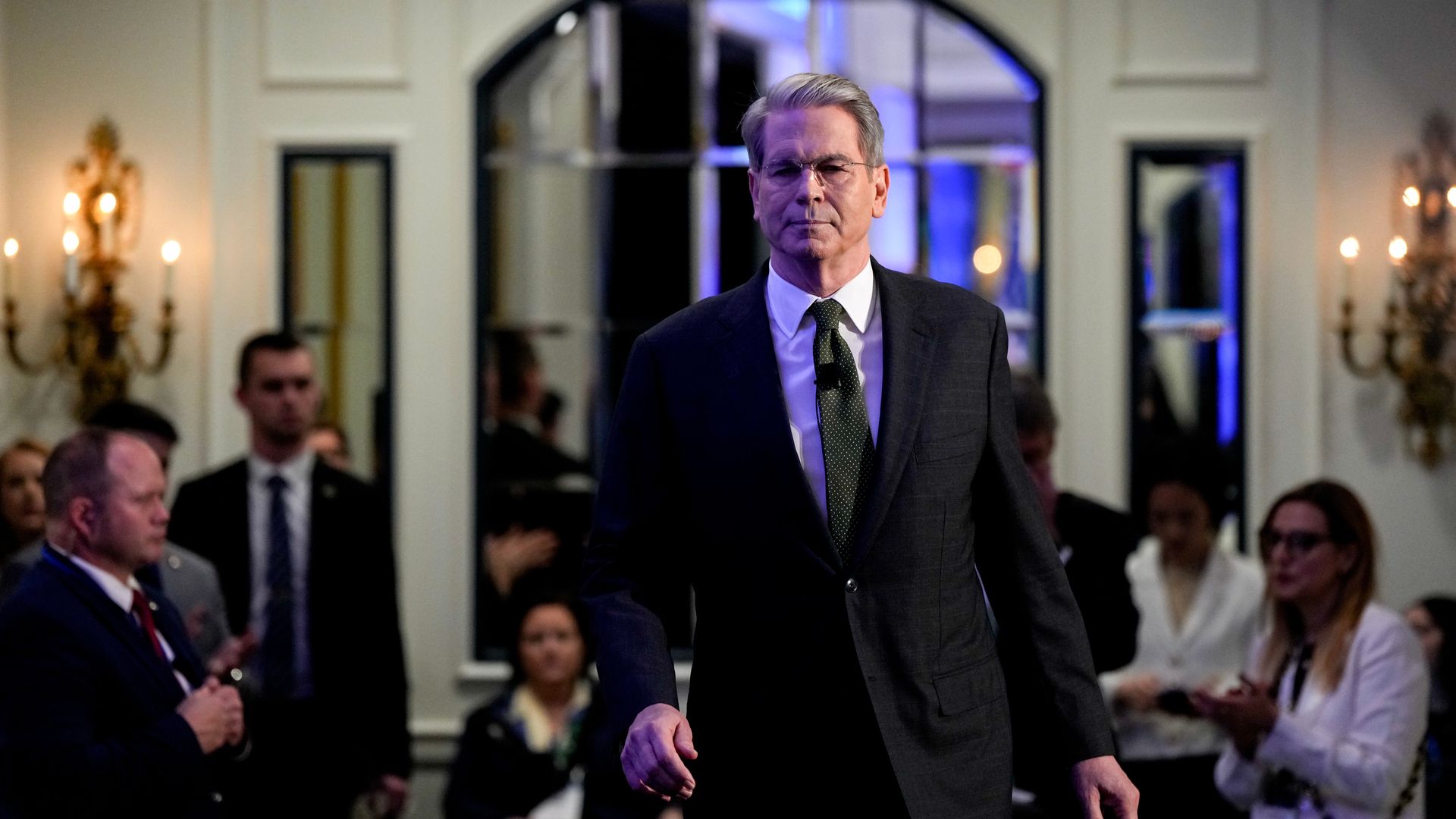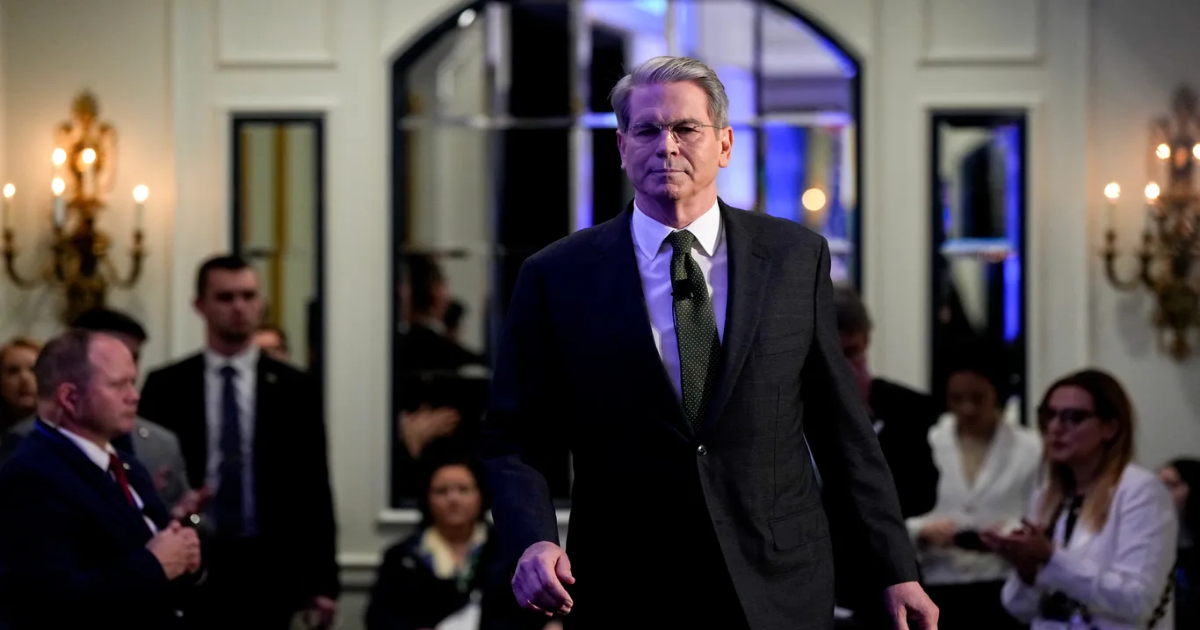 Treasury Secretary Scott Bsssent. Photo: Kent Nishimura/Bloomberg via Getty Images
Treasury Secretary Scott Bsssent. Photo: Kent Nishimura/Bloomberg via Getty Images
The trade war with China is “unsustainable” in its current form, Treasury Secretary Scott Bessent said Wednesday, but the U.S. will not move unilaterally to reduce tariffs.
Why it matters: As recession worries grow, the Trump administration is signaling intentions to tamp down trade tensions with China, which have threatened to all but shutter commerce between the world’s two largest economies.
What they’re saying: “I think both sides believe that the current status quo is unsustainable,” Bessent told reporters following a speech at the Institute of International Finance in Washington. The U.S. currently imposes 145% tariffs on Chinese imports, and China has retaliated with 125% tariffs on the U.S.
- “I think both sides are waiting to speak to the other,” he said.
- “I think at this point there would have to be a de-escalation by both sides,” he added, saying that “I would not be surprised if they went down in a mutual way,” and that there is “no unilateral offer from the president to just de-escalate.”
Of note: In terms of the logistics of potential talks with China, Bessent said that “it’s both a blessing and a curse that the strongest relationship is at the very top,” between Trump and Chinese president Xi Jinping.
- “Obviously any talks would not begin at the very top,” Bessent said, “so I don’t have a time frame.”
State of play: Markets have soared in the last two sessions as administration officials have signaled the potential to back off the current 145% tariff on Chinese imports.
- Trump himself said yesterday afternoon that China tariffs will “come down substantially” and that he won’t play “hardball” with the nation.
The bottom line: Trump paused so-called “reciprocal” tariffs on most global trading partners April 9, creating a 90-day window to strike broad new deals. Bessent shed some light on what those talks may look like Wednesday.
- “A satisfactory arrangement does not necessarily mean the actual trade document,” he said. “It means that we have reached agreement in principle, and then we will start implementing those.”
